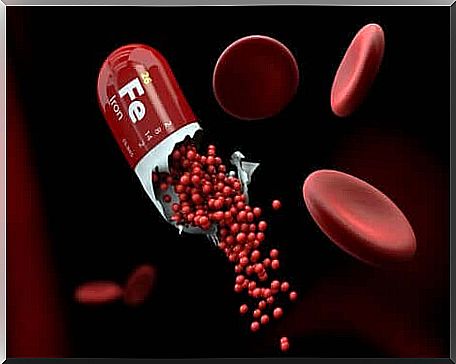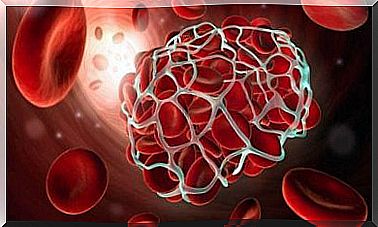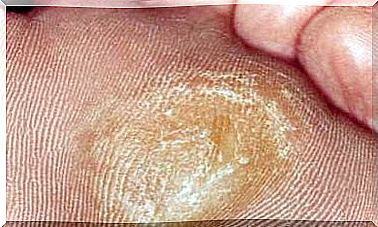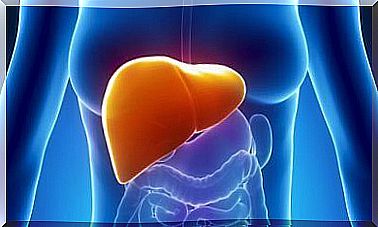Elevated Ferritin Levels: Causes, Symptoms And Treatment

Ferritin is one of the proteins involved in the metabolism of iron. It is responsible for storing in certain cells in your body so that you have reserves if necessary. Elevated ferritin levels in the blood can be a sign that something is wrong in the body.
Most ferritin is found in the liver. However, there is also a quantity that circulates in the blood. Therefore, when the amount of ferritin in the blood is determined, the iron concentration in the body can also be estimated.
Iron is essential for the hemoglobin in the red blood cells to bind oxygen. In this way the oxygen can be transported to all our cells. In this article we explain what it means when elevated ferritin levels have been shown in the blood and how this can be reduced.
What does it mean to have elevated ferritin levels in the blood?

As we mentioned, ferritin is a protein that allows cells to store iron. When the concentration in the blood is measured, we can determine whether the iron stores are high, low or within normal limits.
- Normally, blood ferritin levels in men should be between 12 and 300 nanograms/milliliter.
- For women, the normal level is between 12 and 150 ng/ml. This difference is due to the fact that women lose a significant amount of iron during menstruation.
If someone has elevated ferritin levels, it means that the iron level is also high. This can have various causes, including damage to the liver. Other issues that can cause this include:
- Drinking alcohol frequently or excessively.
- Inflammatory processes. These can be caused by many diseases and are also seen in cancer.
- A diet very rich in iron.
- anemia. This cause is very complex. If the body has an iron deficiency, it can try to solve it by increasing the amount of ferritin in the blood and thus the available iron.
- Receiving Multiple Blood Transfusions.
- The hemophagocytic syndrome. This is a condition in which certain cells of the immune system called macrophages are more active than normal. These macrophages are cells that also store ferritin.
Finally, we must not forget that having elevated ferritin levels also depends on genetic factors. There is also a hereditary disease called hemochromatosis. In this disease there is an excessive accumulation of iron in the body.
What symptoms can occur?

In general, people are asymptomatic at first, but after a while certain symptoms may appear. Often the first symptom is that a person feels tired and weak.
In addition, it is not uncommon for someone with elevated ferritin levels to suffer from abdominal or joint pains. The skin may also darken. It is also possible for someone to develop heart problems.
How is elevated ferritin levels treated?
To lower ferritin levels, there are certain therapeutic options. If the doctor has established elevated levels, he or she will discuss the best options with the patient. One of the options for dealing with this problem is to reduce the intake of foods that are very rich in iron such as:
- Spinach
- liver
- Red meat
In addition, doctors often recommend eating more sources of chelates. Chelates are substances that bind to metals in the blood such as iron. Due to this connection, the body will excrete the substances and thus lower the iron content.
Finally, the doctor may prescribe that the patient undergo phlebotomy. Bloodletting is known from the Middle Ages, but is still practiced with the help of modern medicine.
It is a procedure that consists of drawing blood from the patient with elevated ferritin levels. This may need to be done several times to sufficiently lower the ferritin level. In addition, regular blood analyzes are needed to monitor blood iron levels.
What is very important to remember is that it is important to see your doctor regularly and have blood tests done. That way you can discover many important things about your health, such as your ferritin level in your blood.









